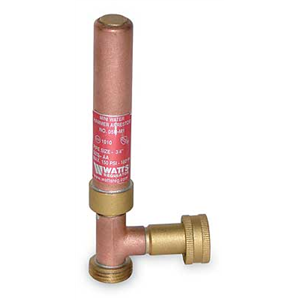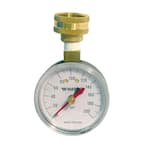Hello - Every time the toilet finishes running, the washing machine stops the rinse cycle or even the dishwasher stops the rinse cycle, the pipes make a loud bang. I'm guessing the water is being shut off from the toilet, washer, etc. It sounds to me like I may have too much water pressure but whenever I turn on the faucets or turn on the shower/tub the water doesn't come out abnormally strong like I would expect with a home that has a lot of water pressure.
Has anyone ever heard of this and if so, is there anything I can do about it? Should I be concerned about bursting a pipe, etc? Thank you for any help anyone can pass along.
Has anyone ever heard of this and if so, is there anything I can do about it? Should I be concerned about bursting a pipe, etc? Thank you for any help anyone can pass along.


